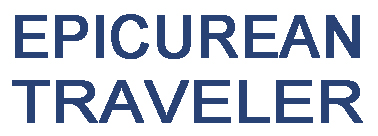Most readers of Epicurean-Traveler.com will know that in the food world CIA does not stand for “Central Intelligence Agency”, but rather The Culinary Institute of America. Founded in 1946 in Hyde Park, the birthplace of President Franklin Delano Roosevelt, 70 miles up the Hudson from New York City, the CIA, to summarize its press release, is the world’s premier culinary college, dedicated to developing leaders in foodservice and hospitality. It offers master’s, bachelor’s, and associate degrees with majors in culinary arts, baking and pastry arts, food business management, hospitality management, culinary science and applied food studies. With a worldwide network of 50,000 alumni, today besides Hyde Park, the CIA has campuses in Greystone (St. Helena) and Copia in California, Sant’Antonio in Texas, and in Singapore.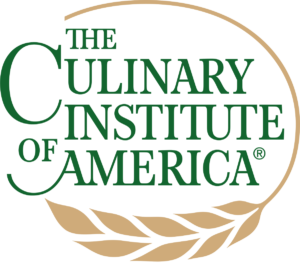
At the California campus in downtown Napa in the Oxbow District hailed as a “foodie wonderland” by The New York Times, the Chuck Williams Culinary Arts Museum opened on June 4. It features some 4,000 rare culinary artifacts from his personal collection, built up over Williams many years of global travel.
Charles Edward “Chuck” Williams is not a household word outside of the kitchen. Born in 1915 in Jacksonville, Florida, Williams learned to cook from Leona Shaw, his maternal grandmother,
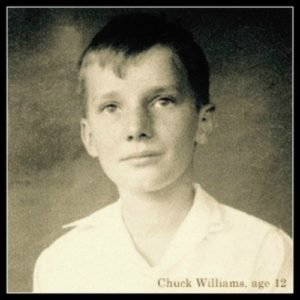
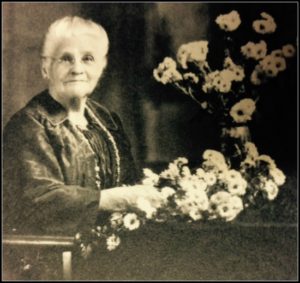
Leona Shaw, Chuck’s maternal grandmother
who had owned a restaurant in Lima, Ohio. When the Great Depression hit and his father’s auto repair business failed, he and his family moved to California, only to be abandoned by his father. Williams eventually founded work on a date farm in Indio, near Palm Springs owned by Dana and Abigail Sniff, who all but adopted him.
After serving as an airplane mechanic during World War II in India and East Africa, Williams returned to California and settled in Sonoma, where he bought the Ralph Morse Hardware Store in 1953, the same year that he spent two weeks in Paris, France, which changed his life. “Over the next few years,” his entry in Wikipedia tells us, “he gradually converted its stock from hardware to French cookware, filling a niche in the market as European cookware was difficult to find for purchase in America at the time.
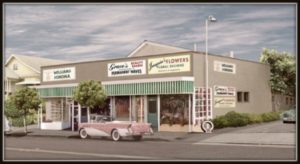
Chuck’s original store
The concept was successful, and he moved his operation to San Francisco in 1958 [and opened a shop downtown on Sutter Street]. More than a decade later, in 1971, Williams-Sonoma introduced its first mail-order cookware catalog. Soon after, the business began expanding to more locations and now includes over 600 stores nationwide.” Its headquarters was on Fisherman’s Wharf.
In addition Williams was the author and editor of over 200 cookbooks that have sold over 100 million copies worldwide. He died at age 100 in his sleep at home on Russian Hill and left his collection to CIA. To learn more about Williams’ love of good food, passion for customer service, and legendary good taste, William Warren’s biography, Merchant of Sonoma: Pioneer of the American Kitchen (2011).
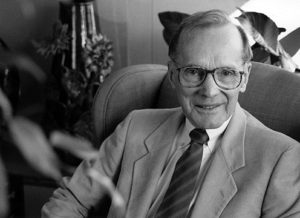
The Williams’ collection, which mostly comes from France, but also from Italy, northern Europe, and China, is displayed by equipment type and includes baking and culinary tools, appliances, and tableware. “Some of its standout pieces,” the press release says, include whimsical soup tureens shaped like boar’s heads, rabbits, or lambs, and curiosities like a centuries-old duck press.” Another is the turbotière, a heavy gauged cooper pan designed for poaching a whole turbot or other flatfish. “Williams’ favorite pieces,” Kendal Hurley, PR for the museum, told me, went on to be become signature Williams-Sonoma pieces: the Aplico Cow pitcher, soufflé dishes, crepe pans, copper cookware, Le Creuset Cookware and the Cuisineart, to name a few…He wasn’t the first merchant to sell woks, but he helped people to understand what cookware they needed to be successful in making Asian food. He also provided recipes for the dishes that used a particular piece of cookware that he sold.” The museum is open seven days a week from 10:30 AM to 5 PM. Admission is free.
Other attractions at CIA at Copia include hands-on cooking classes and demonstrations, art exhibits, food events, a signature garden-to-table restaurant, another casual eatery, wine tastings, an exclusive 3-D interactive dining experience, a late night outdoor venue for bocce enthusiasts, and marketplace.
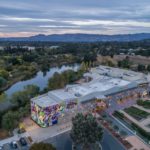
CIA at Copia
